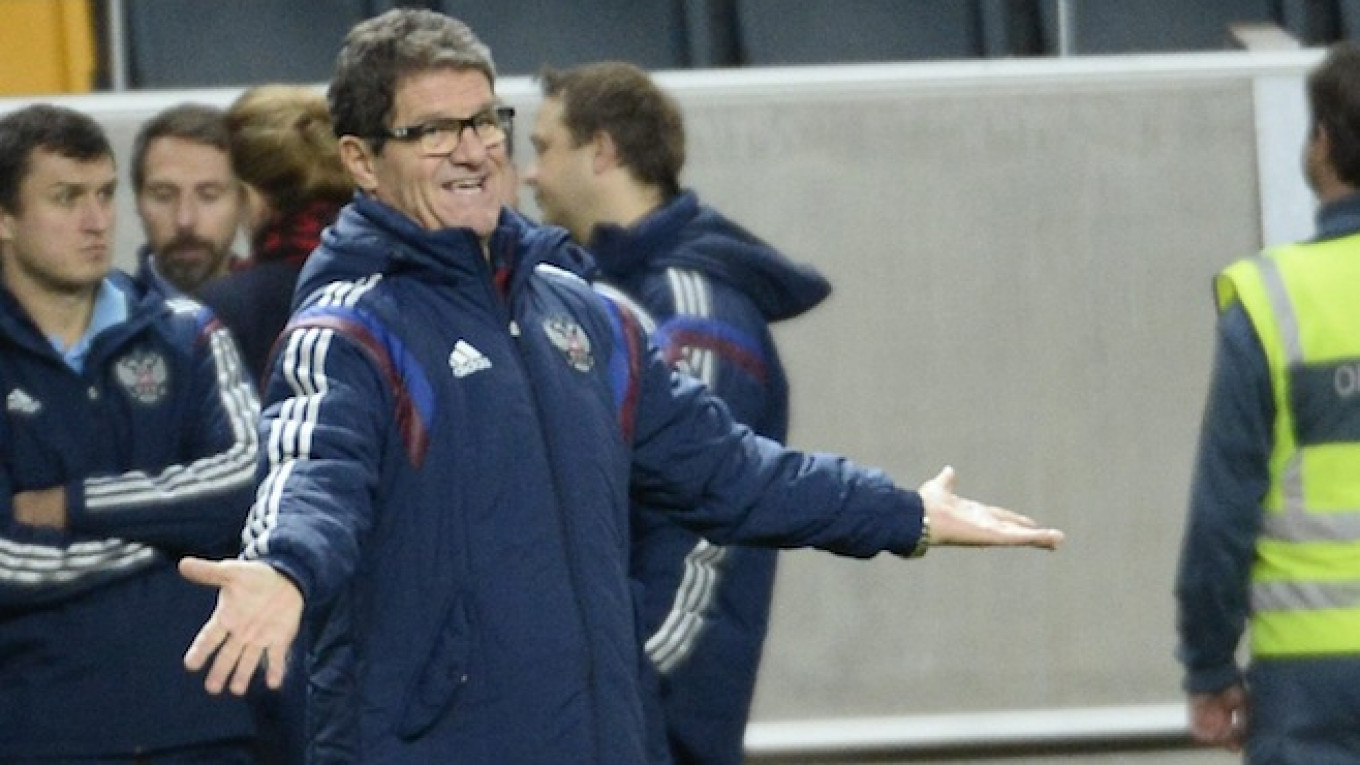Russia coach Fabio Capello has been invited to attend a parliament hearing at the State Duma, the country's main legislative body, on Oct. 27.
"I invited Capello to speak with him about how the Russian national team is preparing for the 2018 World Cup," Igor Ananskikh, head of the Duma's Committee for Physical Culture and Sport, said in an interview with TASS news agency on Thursday.
"I don't know if he will turn up for the session. As far as I am aware, Capello has left Moscow and will only return at the end of the week."
"Aside from talking about the national team's preparations at the parliamentary hearing, we will also talk about questions concerning the development of infrastructure and the construction of stadiums in the cities, which will host matches at the 2018 World Cup."
The news was greeted with surprise in Russia. The honorary president of the Russian Football Union Vyacheslav Koloskov said that such a meeting with a national team manager would be impossible in other countries.
"Capello was never asked or was invited before to attend the State Duma. I can say with absolute certainty that such practices would never take place abroad," the former FIFA vice-president was quoted as saying by newspaper Sport Den Za Dnem.
Fabio Capello took over as Russia coach in 2012 and led the country to their first World Cup for 12 years in Brazil.
Russia failed to qualify for the knockout stages, however, after finishing with two points from three group games.
The Italian coach extended his contract with the Russian Football Union in January in a deal that will keep the 68-year-old in charge until the conclusion of the 2018 World Cup in Russia.
Capello has not been paid for the last four months, according to Russian media reports.
Television channel Dozhd quoted a source earlier this month saying Capello would quit if the President of the Russian Football Union Nikolay Tolstykh stayed in his role.
A Message from The Moscow Times:
Dear readers,
We are facing unprecedented challenges. Russia's Prosecutor General's Office has designated The Moscow Times as an "undesirable" organization, criminalizing our work and putting our staff at risk of prosecution. This follows our earlier unjust labeling as a "foreign agent."
These actions are direct attempts to silence independent journalism in Russia. The authorities claim our work "discredits the decisions of the Russian leadership." We see things differently: we strive to provide accurate, unbiased reporting on Russia.
We, the journalists of The Moscow Times, refuse to be silenced. But to continue our work, we need your help.
Your support, no matter how small, makes a world of difference. If you can, please support us monthly starting from just $2. It's quick to set up, and every contribution makes a significant impact.
By supporting The Moscow Times, you're defending open, independent journalism in the face of repression. Thank you for standing with us.
Remind me later.






